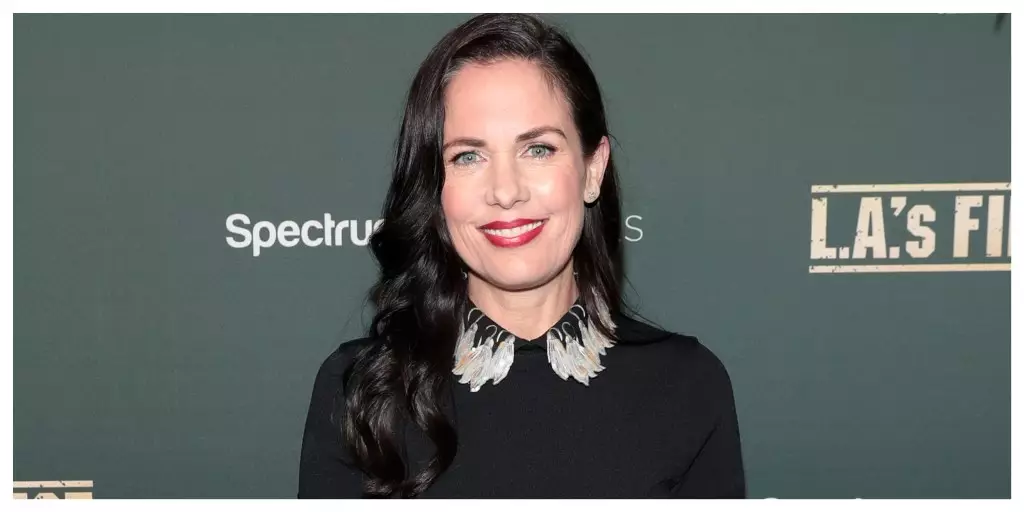As the television landscape continues to evolve at a breakneck pace, the industry looks toward experts to guide its trajectory. One such voice is Katherine Pope, president of Sony Pictures Television Studios, who recently shared her insights during a keynote interview at the MIA conference in Rome. With previous experience at NBCUniversal and now over two years at Sony, Pope’s perspective is deeply rooted in the contrasting paradigms of the traditional broadcast system and the current streaming era. Her assertions highlight the potential benefits of revisiting foundational principles that once governed television production.
Pope pointed to the systematic rigor once prevalent in the U.S. broadcast industry, which emphasized the necessity of completing shows on time and within budget. This structured approach, she argues, is making a resurgence in the face of what she describes as the “hangover of the boom times.” The abundance of content produced during peak streaming periods has led to financial constraints and logistical challenges, prompting a reevaluation of production practices. “Creative production budgetary friction is a good thing,” she stated, underlining her belief that constraints can foster innovation and lead to unexpected outcomes in storytelling.
Pope envisions a future where the television industry harmoniously blends the efficiency of traditional broadcasting with the artistic sensibilities that have developed in recent years. She suggests that the synthesis of these two approaches could yield a more sustainable production environment, where creativity flourishes within the bounds of fiscal responsibility. This idea is particularly relevant as audiences demand increasingly high production values while companies grapple with the realities of tight budgets and stringent timelines.
The current slate from Sony Pictures Television Studios embodies this blend of creativity and structure, showcasing projects like the highly anticipated final season of “The Boys” as well as its upcoming spinoffs, “Gen V” and “Vought Rising.” Each of these shows not only reflects a creative vision but also demonstrates Sony’s ability to navigate the complexities of modern television production. The company’s independence, according to Pope, is a critical asset, allowing it to remain focused on storytelling without being swept up in the industry’s chaotic streaming wars.
Amid the upheaval in the television industry, Pope expressed a firm commitment to producing quality content that resonates with audiences. She credited Sony’s in-house intellectual property, which spans film, music, and even anime, as a vital part of their production strategy. This treasure trove of content potential offers a solid foundation for crafting stories that appeal to varied demographics, thus enhancing the viewer experience.
A focal point of Pope’s discussion was the series “The Boys,” a groundbreaking anti-superhero drama that has captured substantial viewership and critical acclaim. Its exploration of dark themes and complex narratives has not only established it as a standout series but has also set the bar for future productions. With its fourth season achieving record-high viewing numbers, it exemplifies the success of a well-executed creative vision. Pope termed the spinoff “Vought Rising” as “like Mad Men meets The Boys,” drawing connections between impactful storytelling and thematic depth.
Despite the positive outlook, Pope was notably critical of processes that delay series renewals based on data-driven models which often prioritize analytics over the viewing experience. She voiced her concerns about the implications for fans, who might be left waiting for new seasons of their favorite shows for extended periods. This lengthy gap not only risks losing audience interest but also detracts from the continuity that viewers crave in serialized storytelling.
Pope stressed the need for the industry to adapt and shorten timelines, pushing back against the data-driven inertia that can stifle creativity and prolong gaps between seasons. “We can’t afford to lose fans,” she asserted emphatically, advocating for a revision of the approach to television production that prioritizes both fan engagement and artistic exploration.
Katherine Pope’s insights offer a roadmap for navigating the complexities of contemporary television. By balancing the structured, results-oriented mindset of traditional broadcasting with the innovative spirit fostered in recent years, the industry can create a more engaging and sustainable narrative landscape. Through a commitment to quality storytelling and responsiveness to audience needs, rather than mere data analytics, television can continue to thrive in this age of transformation. As Pope highlighted, the future of entertainment lies in crafting shows that not only resonate with fans but also push creative boundaries, leading to a rich tapestry of stories that engage and inspire.
